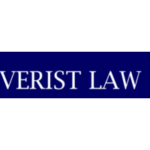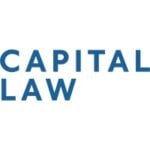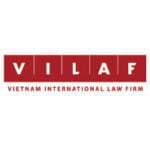-
Please briefly describe the regulatory framework and landscape of both equity and debt capital market in your jurisdiction, including the major regimes, regulators and authorities.
In Mainland China’s capital market, the primary regulators for the stock market are the China Securities Regulatory Commission (CSRC) and its local counterparts, the Shanghai Stock Exchange (SSE), Shenzhen Stock Exchange (SZSE), Beijing Stock Exchange (BSE), and the National Equities Exchange and Quotations (NEEQ). Specifically, for a company to be listed on the Beijing Stock Exchange, it is a prerequisite that its shares shall have been listed on the NEEQ.
If a company intends to make an initial public offering (IPO) and list on the SSE, SZSE or BSE, it must go through the following steps: (i) the applicant transforms its corporate form from a limited liability company into a joint-stock limited company, (ii) the relevant investment bank provides coaching services to the company, upon completion of which, the local CSRC bureau will review and issue acceptance of such coaching; (iii) the company submits its listing application to the intended stock exchange and the relevant exchange’s listing review center examines and accepts the application; (iv) upon review of the application documents, the exchange issues comment letters and then the company and its intermediaries provide responses to such comments and update the prospectus and related application documents accordingly; (v) following rounds of sufficient responses from the applicant and its intermediaries, the exchange’s listing committee reviews the application; (vi) if the committee deems the company eligible for issuance and listing, the materials are forwarded to the CSRC for registration, after which the stock issuance and listing process commences.
For a listed company seeking equity financing, the process would be as follows: (i) it obtains relevant general meeting’s approval on the financing, and submits the issuance application to the stock exchange for review; (ii) upon approval by the stock exchange, the CSRC registers the issuance, followed by the securities issuance and listing process.
It should be noted that for both IPOs and refinancings by listed companies, it is mandatory to engage sponsor institutions, law firms, and accounting firms to provide the necessary services.
In China, the principal authorities regulating the debt capital market include the National Development and Reform Commission (NDRC), the National Association of Financial Market Institutional Investors (NAFMII), and the stock exchanges. The NDRC is primarily responsible for the approval and regulation of Enterprise Bond issuances. NAFMII is in charge of the registration of debt financing instruments issued in the interbank market (including short-term commercial paper, ultra-short-term commercial paper, medium-term notes, etc.). The stock exchanges are responsible for the review and regulation of corporate bonds.
-
Please briefly describe the common exemptions for securities offerings without prospectus and/or regulatory registration in your market.
In China, there are no exemptions for securities offering without prospectus and/or regulatory registration. However, when a company issues shares to incentive targets under an equity incentive plan, such issuance does not require review and registration. It can proceed directly with share registration after the plan is approved by the shareholder’s meeting.
Additionally, for equity offerings of a listed company to specific targets where the total financing amount does not exceed RMB 300 million and does not exceed 20% of the net assets of such listed company as of the end of the latest fiscal year, a simplified procedure is applicable.
-
Please describe the insider trading regulations and describe what a public company would generally do to prevent any violation of such regulations.
I. Regulations on Insider Trading
- The Securities Law of the People’s Republic of China stipulates that “insiders with knowledge of material non-public information and persons who have obtained such information through illegal means are prohibited from engaging in securities trading activities based on such insider information.” If insider trading is conducted, the illegal securities held will be ordered to be dealt with according to the law, illegal gains will be confiscated, and a fine of one to ten times the amount of illegal gains will be imposed; if there are no illegal gains or the illegal gains are less than RMB 500,000, a fine of between RMB 500,000 and RMB 5 million will be imposed. If an organization engages in insider trading, warnings will also be given to the directly responsible supervisors and other directly responsible personnel, and fines of between RMB 200,000 and RMB 2 million will be imposed.
- The Listing Rules and other documents of the CSRC and stock exchanges also stipulate provisions prohibiting insider trading.
- The Criminal Law of the People’s Republic of China stipulates the crime of insider trading and the crime of disclosing insider information.
II. Measures to Prevent Insider Trading
To prevent insider trading by relevant personnel, listed companies usually take the following measures:
- Listed companies should establish an insider information management system, which specifies provisions for insider information, insiders with knowledge of such information, and confidentiality measures.
- Listed companies should keep records of insiders with knowledge of insider information, have them sign confidentiality agreements, and inform them that they are not allowed to engage in insider trading.
- Listed companies should regularly provide compliance training to key personnel to enhance their awareness of compliance.
- For information that cannot be kept confidential, it should be announced in a timely manner according to the rules to make the information public.
-
What are the key remedies available to shareholders of public companies / debt securities holders in your market?
According to the laws and regulations of China, the main remedies available to shareholders of listed companies / debt security holders are as follows:
- Shareholders of listed companies / debt security holders can exercise the right to propose the convening of a shareholders’ meeting / bondholders’ meeting, to propose agenda to be resolved at such meeting, and to vote on resolutions;
- Shareholders can request the relevant organizations of the company (the board of supervisors or the board of directors) to bring a lawsuit against the responsible personnel when the company’s interests are damaged, or to bring a lawsuit in their own name;
- If there is false statement or fraudulent issuance in the issuance of company stocks or bonds, shareholders / bondholders can demand that the company, its major shareholders, directors, supervisors, senior management personnel, and other responsible institutions bear compensation liability.
-
Please describe the expected outlook in fund raising activities (equity and debt) in your market in 2025.
The equity financing market in China’s capital market is expected to remain relatively stable in 2025, with no significant changes in the number of IPOs and refinancings by listed companies. In terms of IPO destinations, the BSE is expected to be the main venue, and the number of A-share listed companies applying for listing on the Hong Kong Stock Exchange is expected to increase significantly. In 2025, the CSRC has introduced a number of policies to support mergers and acquisitions, which will make mergers and acquisitions by listed companies more active.
In the debt sector, with the further optimization of the system of Sci-Tech Innovation Bonds, the scale of corporate debt financings is expected to see significant growth.
-
What are the essential requirements for listing a company in the main stock exchange(s) in your market? Please describe the simplified regime (if any) for company seeking a dual-listing in your market.
I. Basic Requirements for Listing on the Main Stock Exchanges
The basic requirements for listing on the main stock exchanges in China include:
- The issuer is a joint-stock limited company established in accordance with the law and has been in continuous operation for more than three years, with a sound and well-functioning organizational structure, and the relevant bodies and personnel are able to perform their duties in accordance with the law.
- The issuer’s accounting foundation work is standardized, and the financial statements are prepared and disclosed in accordance with the enterprise accounting standards and relevant information disclosure rules, fairly reflecting the issuer’s financial condition, operating results, and cash flows in all material respects. The financial statements for the most recent three years have been audited by certified public accountants which issued an unqualified opinion.
- The issuer has a sound internal control system that is effectively implemented, which can reasonably ensure the company’s operational efficiency, compliance with laws and regulations, and reliability of financial reports, and a certified public accountant has issued an unqualified conclusion on the internal control attestation report.
- The issuer has complete assets, and its business, personnel, finance, and institutions are independent, with the ability to operate independently and continuously in the market.
- The issuer’s main business, control, and management team have remained stable over the past two/three years.
- The issuer’s share ownership is clear, with no significant ownership disputes that could lead to a change in control.
- There are no significant ownership disputes involving major assets, core technologies, trademarks, etc., no significant debt repayment risks, no significant guarantees, litigation, arbitration, or other contingent matters, and no significant adverse changes in the operating environment that could have a material adverse effect on continuous operations.
- The issuer’s production and operation comply with the provisions of laws and regulations and national industrial policies.
- Within the past three years, the issuer and its controlling shareholders and actual controllers have not committed any criminal offenses such as embezzlement, bribery, misappropriation of property, or destruction of the socialist market economic order, nor have they committed any major illegal acts such as fraudulent issuance or significant information disclosure violations, or any other major illegal acts involving national security, public safety, ecological safety, production safety, public health safety, and other fields.
- Directors, supervisors, and senior management personnel have not been subject to administrative penalties by the CSRC within the past three years, nor are they under investigation by judicial authorities for suspected crimes or under investigation by the CSRC for suspected violations and illegal activities without a clear conclusion.
II. Simplified Regime for Dual-Listing
Currently, there is no simplified regime for companies seeking dual-listing in China’s capital market.
-
Are weighted voting rights in listed companies allowed in your market? What special rights are allowed to be reserved (if any) to certain shareholders after a company goes public?
Weighted voting rights are permitted in China’s capital market. However, companies with weighted voting rights face higher listing requirements, primarily in terms of market value and revenue.
After going public, certain special shareholder rights that can be reserved include: allowing shareholders with weighted voting rights to have enhanced voting power, and allowing preferred shareholders to receive dividends on a priority basis.
-
Is listing of SPAC allowed in your market? If so, please briefly describe the relevant regulations for SPAC listing.
Currently, the listing of Special Purpose Acquisition Company (SPAC) is not permitted in China’s capital market, and there are no relevant regulations in place.
-
Please describe the potential prospectus liabilities in your market.
In China’s capital market, issuers and related responsible institutions and individuals are required to ensure that the information in the prospectus is true, accurate and complete, and must not contain any false records, misleading statements, or material omissions. If the prospectus contains false records, the following legal liabilities may be incurred:
1. Administrative Liability:
If the issuer conceals important facts or fabricates significant false content in its announced securities issuance documents, it will face administrative penalties such as confiscation of illegal gains and fines. The issuer’s controlling shareholders, actual controllers, sponsor institutions, and directly responsible personnel will also face corresponding administrative penalties.
2. Civil Liability:
If the issuer conceals important facts or fabricates significant false content in the prospectus or other securities issuance documents, and the securities have already been issued and listed, the securities regulatory authority under the State Council may order the issuer to repurchase the securities or order the responsible controlling shareholders and actual controllers to buy back the securities. If investors suffer losses as a result, they shall also bear compensation liability.
3. Criminal Liability:
If important facts are concealed or significant false content is fabricated in the prospectus or corporate bond offering documents, the company and related responsible personnel may face criminal liabilities such as fines and imprisonment.
-
Please describe the key minority shareholder protection mechanisms in your market.
The protection mechanisms for minority shareholders in China’s capital market mainly include:
- Right to Information: Listed companies are required to ensure the fairness, impartiality, and timeliness of information disclosure to safeguard the right to information of minority shareholders.
- Right to Propose: Shareholders holding more than 1% of the shares can propose temporary motions to the company’s shareholders’ meeting, and shareholders holding more than 10% of the shares individually or collectively can propose to convene a special shareholders’ meeting.
- Related Party Transaction Avoidance System: When a listed company engages in transactions with its controlling shareholders, actual controllers, and other related parties, the related parties must abstain from voting during the shareholders’ meeting.
- Proxy Voting Rights: The board of directors of a listed company, independent directors, shareholders holding more than 1% of the voting shares, or investor protection institutions may act as solicitors to publicly request shareholders of the listed company to entrust them to attend the shareholders’ meeting on their behalf and exercise shareholders’ rights such as the right to propose and vote.
- Representative and Class Action Litigation: In securities civil compensation litigation for false statements, where the subject of the litigation is of the same kind and there are numerous parties on one side, representatives may be elected to attend the litigation. If an investor protection institution is entrusted by more than fifty investors, it may act as a representative in the litigation.
- Cash Election Rights: In major matters such as voluntary delisting of the company, cash election rights are provided to minority shareholders to ensure their exit rights.
- Indemnity in advance System: If the issuer causes losses to investors due to fraudulent issuance, false statements, or other significant illegal acts, the issuer’s controlling shareholders, actual controllers, and related securities companies may entrust investor protection institutions to reach agreements with the affected investors regarding compensation for damages and provide indemnity in advance.
-
What are the common types of transactions involving public companies that would require regulatory scrutiny and/or disclosure?
1. Material Asset Restructuring
According to the Measures for the Administration of Material Asset Restructuring, asset transactions that meet the standards for material asset restructuring of listed companies are required to go through the corresponding regulatory approval procedures.
2. Equity Financing or Debt Financing
For listed companies involving the issuance of stocks or bonds, it is necessary to fulfill the regulatory approval and registration, filing procedures in accordance with the law.
3. Acquisition of Listed Companies
In cases involving the acquisition of listed companies, it is necessary to obtain compliance confirmation from the exchange in a timely manner and fulfill the disclosure procedures.
4. Material Transactions
Material transactions outside of regular business operations also need to be disclosed in a timely manner. The standards for “materiality” vary slightly among different stock exchanges.
-
Please describe the scope of related parties and introduce any special regulatory approval and disclosure mechanism in place for related parties’ transactions.
I. Scope of Related Parties
Related parties of a listed company include related legal persons (or other organizations) and related natural persons.
A legal person (or other organization) with any of the following circumstances is considered a related legal person (or other organization) of the listed company:
- A legal person (or other organization) that directly or indirectly controls the listed company;
- A legal person (or other organization) that is directly or indirectly controlled by the above-mentioned legal person (or other organization), other than the listed company and its controlled subsidiaries;
- A legal person (or other organization) that is directly or indirectly controlled by a related natural person, or in which a related natural person serves as a director or senior management personnel, other than the listed company and its controlled subsidiaries;
- A legal person (or other organization) that holds more than 5% of the shares of the listed company and its persons acting in concert;
- Any of the above circumstances existed within the past twelve months or will exist according to relevant agreement arrangements within the next twelve months;
- Any other legal person (or other organization) that the CSRC, the stock exchange, or the listed company deems to have a special relationship with the listed company based on the principle of substance over form, which may or has already caused the listed company to favor its interests.
A natural person with any of the following circumstances is considered a related natural person of the listed company:
- A natural person who directly or indirectly holds more than 5% of the shares of the listed company;
- Directors and senior management personnel of the listed company;
- Directors, supervisors, and senior management personnel of the legal person that directly or indirectly controls the listed company;
- Immediate family members of the above-mentioned persons, including spouses, parents, adult children and their spouses, siblings and their spouses, parents of spouses, and parents of children’s spouses;
- Any of the above circumstances existed within the past twelve months or will exist according to relevant agreement arrangements within the next twelve months;
- Any other natural person that the CSRC, the stock exchange, or the listed company deems to have a special relationship with the listed company based on the principle of substance over form, which may or has already caused the listed company to favor his or her interests.
II. Special Regulatory Approval and Disclosure Mechanism for Related Party Transactions
- Listed companies must ensure the legality, necessity, and fairness of related party transactions. When resolving on related party transactions, the related parties must abstain from voting, and the decision shall be made by the non-related parties;
- Related party transactions must be reviewed and approved in advance by independent directors / audit committees;
- If a listed company provides guarantees for related parties, it must be approved by the shareholders’ meeting;
- Compared with other transactions, the standards for approval and disclosure of related party transactions are lower. For example, in the SZSE, transactions with related natural persons exceeding RMB 300,000, or transactions with related legal persons exceeding RMB 3 million and accounting for more than 0.5% of the absolute value of the company’s most recent audited net assets, must be submitted to the board of directors for approval and disclosed in a timely manner.
-
What are the key continuing obligations of a substantial shareholder and controlling shareholder of a listed company?
The main ongoing responsibilities of controlling shareholders and actual controllers of listed companies are as follows:
1.Duty of Good Faith
Controlling shareholders of listed companies have a duty of good faith to the company and other shareholders, and must not abuse their controlling position or use related relationships to harm the legitimate rights and interests of the company and other shareholders, or seek illegal benefits through their control of the company.
2. Maintenance of the Independence of the Listed Company
Controlling shareholders and actual controllers of listed companies should exercise their rights in accordance with the law, strictly fulfill their commitments, maintain the independence of the company, and safeguard the common interests of the company and all shareholders.
3. Ongoing Disclosure Obligations
When shares held by major shareholders and controlling shareholders of a listed company are pledged, frozen, or other circumstances that may have a significant impact on the company’s stock price occur, they should promptly inform the company and cooperate with the company to fulfill the information disclosure obligations.
-
What corporate actions or transactions require shareholders’ approval?
In accordance with Chinese law, the main matters that require approval by the shareholders’ meeting of a listed company are as follows:
- Election and replacement of directors, and determination of the remuneration of directors;
- Review and approval of the board of directors’ report;
- Review and approval of the company’s profit distribution plan and loss compensation plan;
- Resolution on increasing or decreasing the company’s registered capital;
- Resolution on issuing corporate bonds;
- Resolution on the merger, division, dissolution, liquidation, or change of corporate form of the company;
- Amendment of the articles of association;
- Resolution on the hiring or dismissal of the accounting firm undertaking the company’s audit;
- Review and approval of matters involving the purchase or sale of major assets exceeding 30% of the company’s most recent audited total assets within one year;
- Review and approval of changes in the use of raised funds;
- Review and approval of equity incentive plans and employee shareholding plans;
- Other matters stipulated by laws, regulations, and the company’s articles of association.
-
Under what circumstances a mandatory tender offer would be triggered? Is there any exemption commonly relied upon?
I. Circumstances Triggering a Mandatory Tender Offer
When an acquirer holds 30% of the issued shares of a listed company through securities transactions on a stock exchange and continues to increase its stake, it must proceed by way of a tender offer, either a full or partial offer.
II. Exemptions from Tender Offers
An acquirer may be exempt from making a tender offer to increase its stake under any of the following circumstances:
- The acquirer and the transferor can demonstrate that the share transfer is between entities under the same actual control without resulting in a change in the actual controller of the listed company;
- The listed company is facing severe financial difficulties, and the restructuring plan proposed by the acquirer has been approved by the company’s shareholders’ meeting, with the acquirer committing to not transfer its interests in the company for three years;
- The transfer, change, or merger of state-owned assets approved by the government or state-owned asset management departments, resulting in an acquirer holding more than 30% of the issued shares of a listed company;
- The reduction of the company’s share capital by the listed company through the repurchase of shares from specific shareholders at a price approved by the shareholders’ meeting, resulting in an acquirer holding more than 30% of the issued shares of the company;
- Approval by the non-related shareholders of the listed company’s shareholders’ meeting for the acquirer to obtain new shares issued by the company, resulting in the acquirer holding more than 30% of the issued shares of the company, with the acquirer committing to not transfer the newly issued shares for three years and the shareholders’ meeting approving to exempt the acquirer from making a tender offer;
- An acquirer holding 30% or more of the issued shares of a listed company, increasing its stake by no more than 2% of the company’s issued shares within every 12 months after one year from the date of such fact;
- An acquirer holding 50% or more of the issued shares of a listed company, continuing to increase its stake without affecting the company’s listing status;
- Financial institutions such as securities companies and banks, which hold more than 30% of the issued shares of a listed company in the course of their business operations, such as underwriting and lending, without having actual control over the company or the intention to do so, and proposing a solution for transferring the shares to non-related parties within a reasonable period;
- Inheritance resulting in an acquirer holding more than 30% of the issued shares of a listed company;
- The fulfillment of an agreed repurchase transaction agreement to repurchase shares of a listed company, resulting in an acquirer holding more than 30% of the issued shares of the company, with proof that the voting rights of the subject shares were not transferred during the agreement period;
- The restoration of voting rights of preferred shares held by an acquirer resulting in the acquirer holding more than 30% of the issued shares of a listed company.
-
Are public companies required to engage any independent directors? What are the specific requirements for a director to be considered as “independent”?
Listed companies are required to appoint independent directors, and the proportion of independent directors on the board of directors should not be less than one-third.
Candidates for independent directors should have independence, and the following individuals are considered not “independent” and are not allowed to serve as independent directors:
- Persons who are employed by the listed company or its affiliated enterprises and their immediate family members and main social relations;
- Natural person shareholders who directly or indirectly hold more than 1% of the issued shares of the listed company or are among the top ten shareholders of the listed company and their immediate family members;
- Persons who are employed by shareholders who directly or indirectly hold more than 5% of the issued shares of the listed company or are among the top five shareholders of the listed company and their immediate family members;
- Persons who are employed by the affiliated enterprises of the controlling shareholders or actual controllers of the listed company and their immediate family members;
- Persons who have significant business dealings with the listed company and its controlling shareholders or actual controllers or their respective affiliated enterprises, or who are employed by units that have significant business dealings with them;
- Persons who provide financial, legal, consulting, sponsorship, and other services to the listed company and its controlling shareholders or actual controllers or their respective affiliated enterprises;
- Persons who have had any of the above circumstances within the past twelve months.
-
What financial statements are required for a public equity offering? When do financial statements go stale? Under what accounting standards do the financial statements have to be prepared?
For a public equity offering, financial statements for the most recent three years and one interim period are required, audited by an accounting firm with qualifications for securities and futures business. The financial statements cited in the prospectus are valid for six months from the end date of the recent period, and may be extended by up to three months under special circumstances. The financial statements should be prepared with year-end, half-year-end, or quarter-end as the cut-off date.
The financial statements must be prepared in accordance with Chinese Generally Accepted Accounting Principle.
-
Please describe the key environmental, social, and governance (ESG) and sustainability requirements in your market. What are the key recent changes or potential changes?
In early 2025, the SSE, SZSE, and BSE simultaneously issued the Self-Regulatory Guidance for Listed Companies – Compilation of Sustainable Development Reports and the Continuous Supervision Guidance for Listed Companies – Sustainable Development Reports, which clearly stipulate the disclosure content and requirements for listed companies in terms of key environmental, social, and governance (ESG) and sustainable development.
Listed companies are required to integrate the concept of sustainable development into their corporate development strategies and management activities, continuously strengthen ecological protection, fulfill social responsibilities, improve corporate governance, promote the sustainable development of themselves and the economy and society, and gradually enhance their positive impact on the economy, society, and environment.
Companies included in the SSE 180 Index, STAR 50 Index, SZSE 100 Index, ChiNext Index, and companies listed both domestically and overseas are required to disclose the “Sustainable Development Report of Listed Companies” or the “Environmental, Social, and Corporate Governance Report of Listed Companies” (hereinafter collectively referred to as the “Sustainable Development Report”) in accordance with the relevant regulations of the stock exchanges. At the same time, other listed companies are encouraged to voluntarily disclose the “Sustainable Development Report.”
-
What are the typical offering structures for issuing debt securities in your jurisdiction? Does the holding company issue debt securities directly or indirectly (by setting up a SPV)? What are the main purposes for issuing debt securities indirectly?
Debt securities are more commonly issued directly in China, and indirect issuance through a Special Purpose Vehicle (SPV) is prevalent in specific contexts including Asset-Backed Securities (ABS) and certain cross border offerings. Main purposes for indirect issuance include: risk isolation, regulatory compliance, tax efficiency, and asset securitization.
-
Are trust structures adopted for issuing debt securities in your jurisdiction? What are the typical trustee’s duties and obligations under the trust structure after the offering?
Trust structures are adopted for issuing debt securities and the typical trustee’s duties and obligations in this context include: holding trust assets, enforcing security, cashflow monitoring, disclosure compliance, convening bondholder meetings, and payment distribution.
-
What are the typical credit enhancement measure (guarantee, letter of credit or keep-well deed) for issuing debt securities? Please describe the factors when considering which credit enhancement structure to adopt.
Typical credit enhancement measures include: third-party guarantees, collateral pledges, and standby letters of credit (SBLC). Keep-well deeds are used in offshore structures. Issuer’s credit profile, investors’ preferences, cost, flexibility, operational burden, and legal or regulatory feasibility are factors when considering which credit enhancement structure to adopt.
-
What are the typical restrictive covenants in the debt securities’ terms and conditions, if any, and the purposes of such restrictive covenants? What are the future development trends of such restrictive covenants in your jurisdiction?
Typical restrictive covenants include negative pledge, limitations on indebtedness, restrictions on dividends or distributions, restrictions on asset transfers, and cross-default clauses. The purposes include preserving the issuer’s creditworthiness and ability to service the debt, protecting bondholder’s relative position against other creditors, preventing significant asset dissipation or risky behavior, and providing early warning and aligns remedies with other creditors. The future development trends of such covenants are as follows: more ESG-linked covenants, increased specificity, enhanced reporting requirements, and focusing on leverage.
-
In general, who is responsible for any profit/income/withholding taxes related to the payment of debt securities’ interests in your jurisdiction?
In general, the issuer is responsible for any profit/income/withholding taxes related to the payment of debt securities’ interests in China.
-
What are the main listing requirements for listing debt securities in your jurisdiction? What are the continuing obligations of the issuer after the listing?
I. Main Listing Requirements for Debt Securities
- Possess a sound and well-functioning organizational structure;
- The average distributable profit over the past three years is sufficient to cover the interest on the corporate bonds for one year;
- Registered by the competent authority and legally completed issuance;
- Bondholders meet the investor suitability management regulations of the stock exchange.
II. Continuing Obligations of the Issuer After Listing
The issuer shall promptly disclose interim reports, annual reports, and other significant matters that may affect the issuer’s debt repayment capacity or bond prices.
The issuer shall use the raised funds in accordance with the regulations and agreements.
The issuer shall timely repay the bond principal and interest, fulfill obligations such as repurchase, interest rate adjustment, installment repayment, or other commitments.
In case of significant matters that may affect the rights and interests of bond investors and require the investors to make decisions or authorize the taking of corresponding measures, the trustee shall convene the bondholders’ meeting in accordance with the regulations or agreements.
China: Capital Markets
This country-specific Q&A provides an overview of Capital Markets laws and regulations applicable in China.
-
Please briefly describe the regulatory framework and landscape of both equity and debt capital market in your jurisdiction, including the major regimes, regulators and authorities.
-
Please briefly describe the common exemptions for securities offerings without prospectus and/or regulatory registration in your market.
-
Please describe the insider trading regulations and describe what a public company would generally do to prevent any violation of such regulations.
-
What are the key remedies available to shareholders of public companies / debt securities holders in your market?
-
Please describe the expected outlook in fund raising activities (equity and debt) in your market in 2025.
-
What are the essential requirements for listing a company in the main stock exchange(s) in your market? Please describe the simplified regime (if any) for company seeking a dual-listing in your market.
-
Are weighted voting rights in listed companies allowed in your market? What special rights are allowed to be reserved (if any) to certain shareholders after a company goes public?
-
Is listing of SPAC allowed in your market? If so, please briefly describe the relevant regulations for SPAC listing.
-
Please describe the potential prospectus liabilities in your market.
-
Please describe the key minority shareholder protection mechanisms in your market.
-
What are the common types of transactions involving public companies that would require regulatory scrutiny and/or disclosure?
-
Please describe the scope of related parties and introduce any special regulatory approval and disclosure mechanism in place for related parties’ transactions.
-
What are the key continuing obligations of a substantial shareholder and controlling shareholder of a listed company?
-
What corporate actions or transactions require shareholders’ approval?
-
Under what circumstances a mandatory tender offer would be triggered? Is there any exemption commonly relied upon?
-
Are public companies required to engage any independent directors? What are the specific requirements for a director to be considered as “independent”?
-
What financial statements are required for a public equity offering? When do financial statements go stale? Under what accounting standards do the financial statements have to be prepared?
-
Please describe the key environmental, social, and governance (ESG) and sustainability requirements in your market. What are the key recent changes or potential changes?
-
What are the typical offering structures for issuing debt securities in your jurisdiction? Does the holding company issue debt securities directly or indirectly (by setting up a SPV)? What are the main purposes for issuing debt securities indirectly?
-
Are trust structures adopted for issuing debt securities in your jurisdiction? What are the typical trustee’s duties and obligations under the trust structure after the offering?
-
What are the typical credit enhancement measure (guarantee, letter of credit or keep-well deed) for issuing debt securities? Please describe the factors when considering which credit enhancement structure to adopt.
-
What are the typical restrictive covenants in the debt securities’ terms and conditions, if any, and the purposes of such restrictive covenants? What are the future development trends of such restrictive covenants in your jurisdiction?
-
In general, who is responsible for any profit/income/withholding taxes related to the payment of debt securities’ interests in your jurisdiction?
-
What are the main listing requirements for listing debt securities in your jurisdiction? What are the continuing obligations of the issuer after the listing?

















